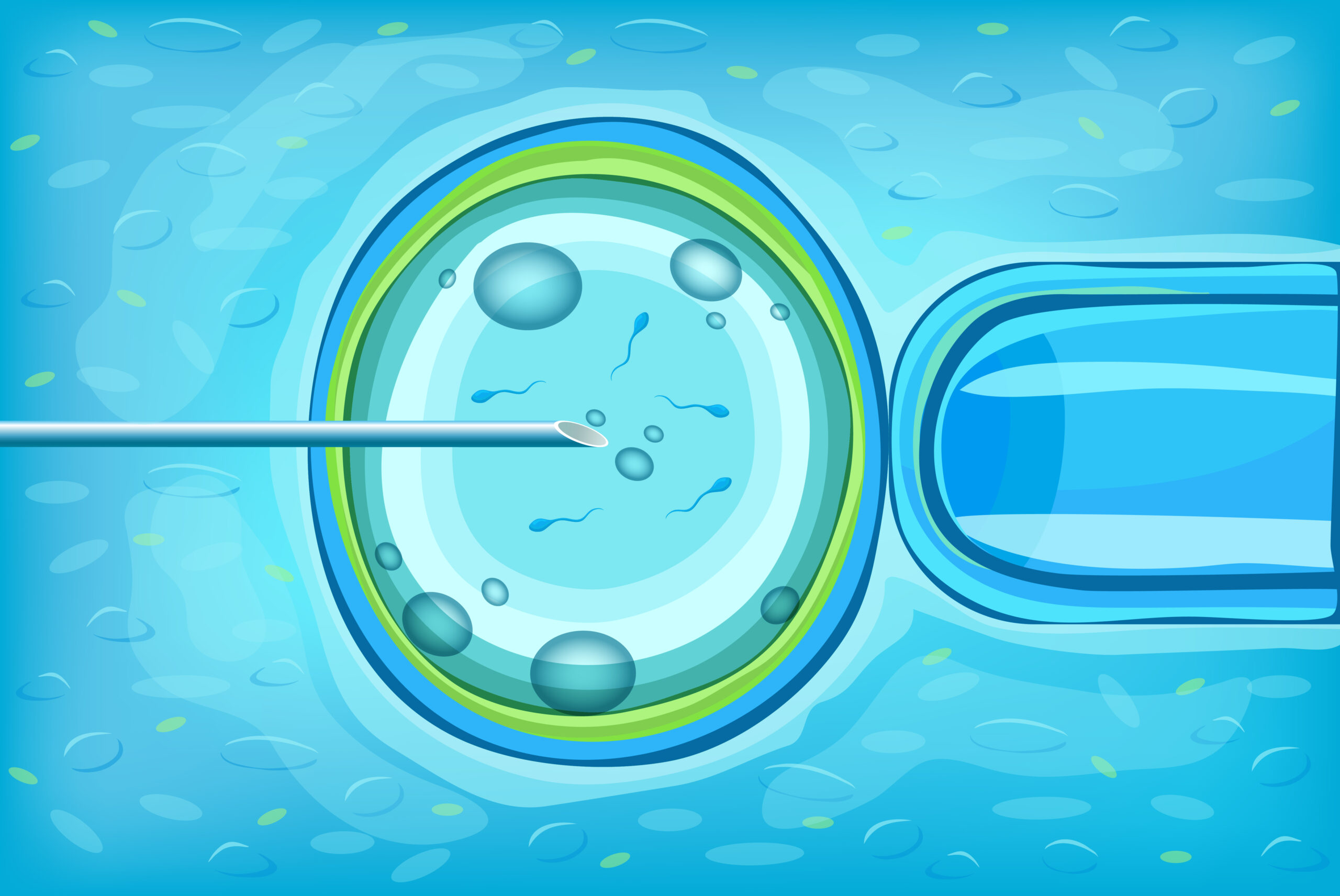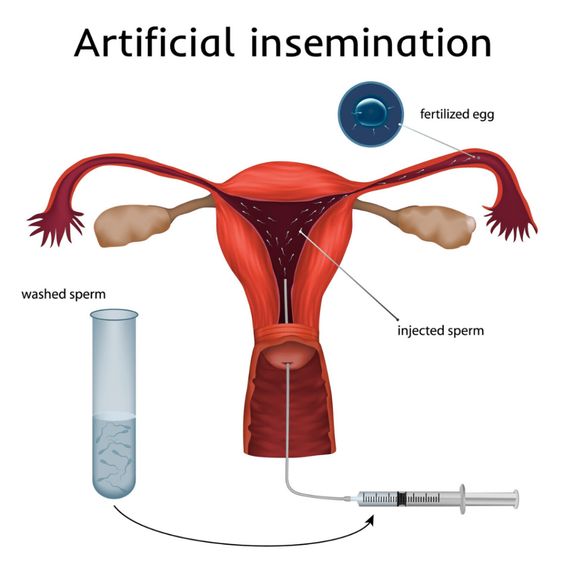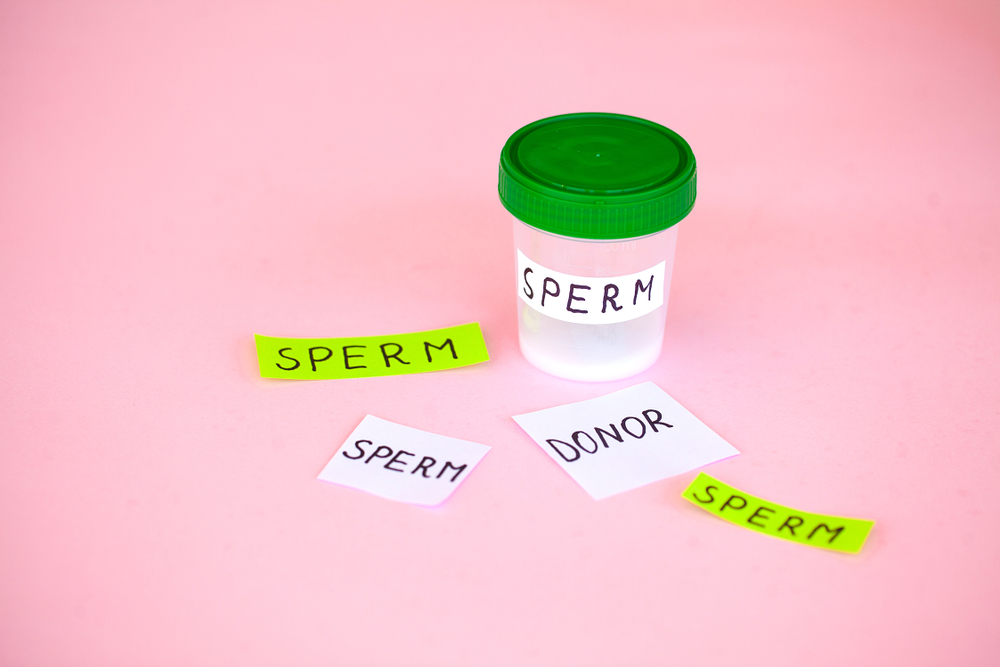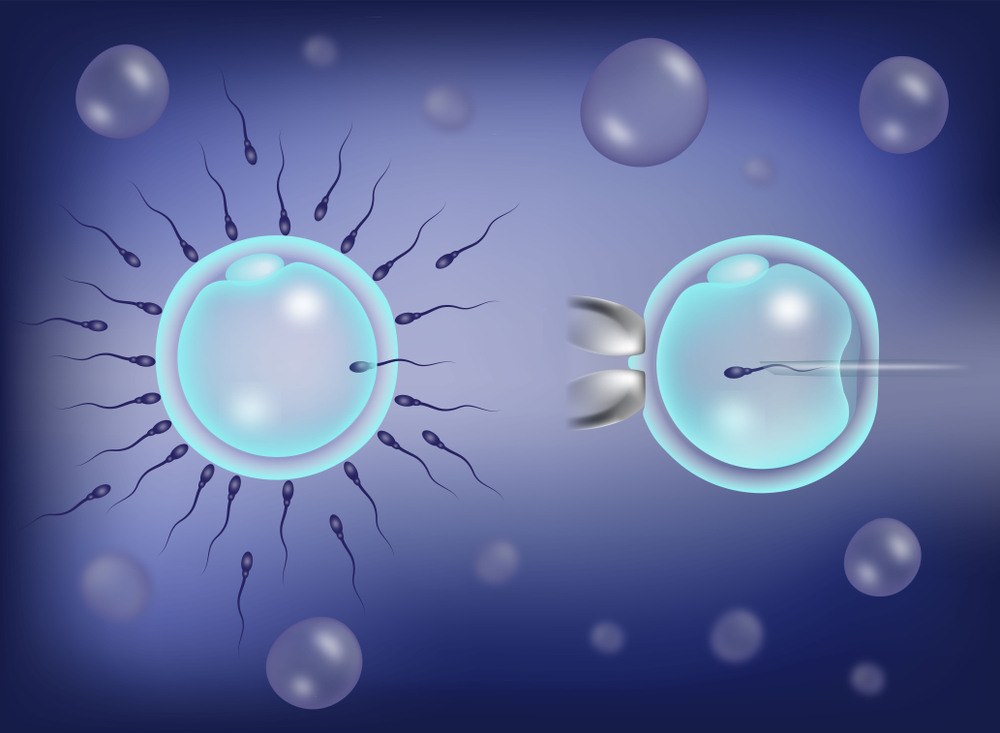






World-Class Technology
We are equipped with all the modern techniques and technologies for infertility treatments. Our top-class IVF lab has recently been upgraded as per the latest international recommendations.

Experienced Doctors & Staff
Dr. Lavleen Sodhi has been running the IVF centre since 2007 & it was the first in the region. With the best team of doctors & staff, we have successfully achieved results at par with the best institutes worldwide.

Patient-Friendly Environment
Dr. Sodhi's Healthcare Multispeciality Hospital and IVF Centre provides the perfect ambience and comfortable environment to all patients. Also, there is complete transparency in the treatment.
Empanelment
Our centre is empaneled with some of the best companies in the country.
- Icici Lombard
- Future Genera
- Med Save
- PARAMOUNT HEALTH CARE
- MEDI ASSIST INDIA
- UNIVERSAL SOMPO
- RELIANCE GENERAL INSURANCE
- BAJAJ ALLIANZ
- STAR HEALTH CARE
- MED HEALTH CLINIC
- MAX BUPA
- ADITYA BIRLA
- AKSHA TPA
- GHPL
- VIDAL HEALTH CARE
- TATA AIA
- FHPL
- KOTAK MAHINDRA
- VIDAL HEALTH CARE
- HDFC ERGO SAFEWAY
- BHARTI AXA
- VIPUL MED CORP
- PARK MEDICLAIM
- TTK
- GHPLTPA
- DHS
- MD INDIA
Why Choose Us
When it comes to your fertility care, you want the best. Dr. Sodhi's Healthcare Multispeciality Hospital and IVF Centre offers the best investigative procedures for infertility in men and women. We are equipped with world-class technology and state-of-the-art infrastructure which caters to infertility treatments like IUI, IVF, ICSI, Sperm donor, Egg Donor, Embryo Freezing, Blastocyst Culture and Transfer, Laparoscopy, Hysteroscopy, and more. In addition to your primary fertility physician, we have put together an integrated support team of experienced nurses, psychologists, and staff who work together to address your physical, emotional, and financial concerns. Choose Dr. Sodhi's Healthcare Multispeciality Hospital and IVF Centre to help build your family!

Dr. Sodhi’s Health Care Multispecialty Hospital & IVF Centre
Dr. Sodhi’s Health Care Multispecialty Hospital & IVF Centre has been running since 2007, employing the latest ‘State of the Art’ technologies for the treatment of infertile couples. The ultra-modern hospital is located in Mohali, a highly progressive township, adjoining Chandigarh.
Dr. LAVLEEN KAUR SODHI
DIRECTOR & Sr. CONSULTANT.
Obstetrician & Gynaecologist, Infertility specialist

Dr. Lavleen Kaur Sodhi is the Director, Sr. Consultant Obstetrician & Gynaecologist and Infertility specialist at Dr Sodhi’s Health Care Multispeciality Hospital & IVF Centre. She is also a visiting consultant at Fortis Hospital, Mohali & Cloud Nine Hospital, Chandigarh. Dr Lavleen Kaur has an illustrious academic record to back her present competencies. She completed her MD in 1995 from the prestigious P.G.I Chandigarh & her D.N.B.E from New Delhi, both in Obstetrics & Gynecology. During her M.B.B.S she also bagged the ‘Silver Medal’ in General Surgery in the final professional examination.
Happy Couples
Our Videos
Blog
 Is it Safe to Get Pregnant with Anxiety? February 8, 2023
Is it Safe to Get Pregnant with Anxiety? February 8, 2023Can I still get pregnant if I’m stressed? Are you worried that your anxiety may cause hurdles in conceiving? If so, you are not alone. Getting pregnant with anxiety is usually associated with worrisome outcomes in mothers and infants. However, the truth is that controlled stress and anxiety has nothing to do with this process.
The guidance and treatment of the top gynaecologist can help immensely during the entire process. Medical experts explain the relationship between anxiety and fertility and some useful tips in this post.
What Science has to Say Here?
Does stress cause infertility in females? Many women fear that anxiety and stress can impact their chances of getting pregnant or their infants’ health. It has been one of the most intense debate topics for over a decade. Here’s what Science has to say about it. You see, stress triggers the production of cortisol in a woman’s body. And elevated cortisol levels can trigger anxiety. It means that stress leads to anxiety.
Thankfully, there is no scientific evidence to prove that controlled anxiety or stress causes challenges in getting pregnant. Moreover, these things also do not cause difficulties during the IVF process. But it doesn’t mean stress doesn’t affect getting pregnant. Prolonged anxiety and stress problems can interfere with natural and artificial pregnancy processes. It can also extend the time of conception in some cases. Why don’t you consult a reputed gynaecologist to learn more about it? Here’s how to find the best gynaecologist in Chandigarh.
Symptoms of Anxiety
Here are the top symptoms that every woman with anxiety planning a pregnancy should know about.
- Frequent spells of nervousness and anxiety
- Excessive worrying about things, especially how you are going to get pregnant
- Constant worrying about your unborn’ s health
- Finding it almost impossible or difficult to relax your mind
- Feeling hard to stay still
- Sexual dysfunction
- A constant feeling of restlessness
- Often feeling agitated and irritable
- Getting afraid often or assuming something bad is going to happen
- Difficulty sleeping
- Sudden dizziness or lightheadedness
- Excess, sudden sweating
- A tingling or numb feeling in lips, toes, limbs, or fingers
- Unexplained trembling, pain, or tension in lips, toes, limbs, or fingers
- Feeling overwhelmed after seeing pregnant women
- Low self-esteem
- Relationship problems
- Getting anxiety or panic attacks
Tips to Manage Anxiety While Planning Pregnancy
Your gynaecologist and psychiatrist are the best people to guide and assist you in planning a pregnancy with mental health condition. Meanwhile, here are some useful tips that can help you manage your anxiety while planning pregnancy.
Talk about it
The best way to manage your anxiety is by talking about it. Reach out to your friends and or family members to express your feelings. Sometimes, simply sharing your thoughts helps you de-stress and motivate you to continue. Besides, you can also ask your doctor to refer to a reliable, trained therapist. Some therapists specialise in helping women experiencing anxiety while planning pregnancy.
Find a Release
Engage in powerful activities that can help in lowering your stress and anxiety. It is a great way to combat all types of mental issues. Physical activities encourage your body to release endorphins, a natural painkiller for the brain. It significantly helps in managing anxiety. Yoga, running, jogging, and walking are the most popular physical activities to consider here. Ideally, you choose any activity that keeps your body moving. A regular 20 to 30 minutes regime can do wonders for your mental health.
Distract your Mind
The moment you experience any anxiety-related symptoms, distract your mind. Meditation, massage, deep breathing, and acupuncture are the top activities that can help you immensely here. Breathing exercises effectively boost the brain’s oxygen level. It stimulates and relaxes the nervous system. Experts recommend 10 to 15 minutes of deep breathing daily for the best results. You can also consider reading books related to how to not stress about getting pregnant.
Speak to your Partner
Besides pouring your heart in front of your friends and family, consider expressing your prenatal stress to your partner. After all, he will be your ultimate companion on this journey. Discuss your concerns about the future and your acceptance of expanding the family. Take some quality time and figure things out. It is a great way to control your thoughts and anxiety.
Learn about Anxiety
Consult your healthcare provider and try to understand more about anxiety and its intensity in your case. You should also try to understand its role in pre and post-pregnancy scenarios. Know the top symptoms to watch for. Also, understand the red flags for rushing to your doctor. Keep your loved ones involved in this process. They can help you manage your anxiety better.
Follow your Treatment Plan
There are medications for stress, anxiety and depression which are safe for couples who are trying to conceive. Or for women who are pregnant and there are others who may not be safe. You need to consult a specialist for the same.
Ensure you take all your medicines as directed by your doctor if you plan to get pregnant. Skipping any dose can trigger your anxiety. Moreover, regular check-ups are also equally crucial to keep your stress and anxiety under control. Consult your therapist immediately if you experience discomfort after taking any new medicine.
Bottom Line
So, it was all about how to plan a pregnancy when you have mental health problems. For many women, handling anxiety is an overwhelming process. Therefore, they should consider seeing professionals for the right guidance and treatment procedure. These therapists have the expertise in putting the patient at ease and initiating a one-on-one interaction.
Besides, support groups can also immensely help in controlling this issue. Please understand that taking therapy for stress and anxiety is normal, especially if it is interfering with your fertility.
You should take hold of your thoughts, find ways to distract your mind and love yourself. It is how you calm anxiety while planning pregnancy. Last but most important, consult the best gynaecologist in India to get the best pre and post-pregnancy care and treatment.
 What is Secondary Infertility? February 4, 2023
What is Secondary Infertility? February 4, 2023Having more than one baby is the dream of many couples. The desire to have a complete family and sibling love brings along lots of excitement. But sometimes, a couple may find it difficult to conceive for a second time. So, is it secondary infertility? To know more, keep reading everything you need to know about secondary infertility, its causes, treatment, and more.

What Does Secondary Infertility Mean?
Any couple who have had one or more pregnancies before, whether successfully or not, and cannot conceive again are said to have secondary infertility. For example, you may have a prior pregnancy that was normal and healthy. However, a case of secondary infertility can occur after a couple tries to conceive for 6 to 12 months without success.
There can be many reasons which can lead to secondary infertility. But you must be wondering how common secondary fertility is. Well, according to the statistics, 11% of couples face secondary infertility alone in the USA.
So, if you find it hard to conceive after trying for a long time, you should consult a medical professional. Dr Sodhi’s Health Care at Mohali offers the best solutions for ruling out and solving infertility issues. Ruling out possible causes and treatment can help you experience motherhood again.
What are the Causes of Secondary Infertility?

There are numerous reasons which can lead to secondary infertility. It can be due to age or certain lifestyle issues. However, going to the right medical professional and working on all the causes can help you once again experience parenthood. Some of the most common causes of secondary infertility in females and males are:
In Females
Increasing age affects the quantity or quality of eggs: Every female needs to know that they are born with a fixed number of eggs. However, as the females approach their late 30s, the number declines, and remaining eggs may have a higher chance of chromosomal defects. Therefore, the decreased quality and quality of eggs can lead to secondary infertility.
Blockage in fallopian tubes: Blocked fallopian tubes are a common cause for secondary infertility. Commonly blockage occurs due to infections like chlamydia, gonorrhoea, and tuberculosis or due to infection or trauma caused by an abortion procedure. The fallopian tube is the area where fertilisation occurs. So, ruling out this situation with tests and medication can help you conceive. Sometimes surgery may be required to open the blocked tubes which is usually done by laparoscopy these days.
Certain uterus conditions: The uterus carries the development of the foetus. However, problems like cysts, polyps, etc., can cause secondary fertility. Also, conditions from the last pregnancy, like dilation and curettage (D&C), caesarean delivery, or placenta infection, can be the reason too.
Endometriosis: Endometriosis is a state where tissue that typically grows inside the uterus grows elsewhere in the body. Endometriosis can cause distortion and scarring of the pelvic organs leading to infertility. Not all endometriosis causes infertility, so it’s important to judge it.
PCOD and PCOS: The failure to release eggs regularly due to hormonal imbalance can lead to PCOD and PCOS. It hinders fertility but can be cured. A thorough knowledge and complete guide to PCOD/PCOS can help you know more about the condition.
Excessive weight gain after the first child’s birth is one of the commonest reasons that triggers off PCOS. Weight reduction benefits women with PCOS who want to conceive and gives general health benefits.Lifestyle changes: Your sedentary practices, weight gain issues, smoking, alcohol consumption, and other unhealthy habits can lead to certain conditions and secondary infertility. Sometimes occupational hazards such as working in a very hot environments or dealing with toxic substances can lead to testicular damage & infertility in the male partner.
In Males
Age: The semen quality and sperm count may be affected after age 40.
Low testosterone levels: Testosterone plays a key role in producing sperm. However, ageing, injury or other medical conditions can cause a decline in its production.
Prostate issues: Prostate enlargement and removal may hinder the production of semen in males.
Late-onset hypogonadism: The reduced hormone secretion known as late-onset hypogonadism in males can cause secondary infertility.
Lifestyle causes: Lifestyle diseases and habits like weight gain, smoking, drinking etc., are also responsible for secondary infertility.
The couples must consult the best fertility centres to rule out the reasons. Then, with some tests and guidance, you can experience parenthood again.
What to Expect During Diagnosis
If you face infertility issues after a successful pregnancy, your doctor may ask a few questions and run some tests. They may include:
- Knowledge about your menstruation in females
- Sperm quality test for males
- Blood test for hormonal issues
- There can be ultrasounds or other procedures to rule out the causes.
Treatments for Secondary Infertility
After asking concerned questions, running tests and making an advanced diagnosis, your doctor may give you possible solutions. First, however, you must know the importance of mental health while adopting fertility treatments. These treatments take time and ensure safe procedures. So, after a thorough discussion with your partner and doctor, you can opt for amazing options.
This may include:
Medications: Various medications can solve common issues related to infertility.
Surgery: There can be uterine fibroids, and uterine scarring, another condition which can be solved with advanced surgeries.
Advanced reproductive technology: Technology like intrauterine insemination (IUI), In vitro Fertilisation (IVF), and many other techniques fall under advanced reproductive technology. These are safe and can be viable options for experiencing parenthood.
Takeaways
Becoming a parent again is a blessing. With the right steps, like egg freezing in India, you can store your eggs and become a parent when you want. Also, staying active, eating healthy and satisfying your unhealthy food cravings with these healthy options can be beneficial.
Secondary infertility can be treated with timely actions. So, contact Dr Sodhi’s Health Care. It is one of the best Multispecialty Hospitals & IVF Centre In Mohali. We offer IVF, IUI, PESA, TESA, mTESE, egg and sperm donation, Preimplantation Genetic Testing (PGT), Cryopreservation, Laparoscopy & Hysteroscopy, Recurrent Miscarriage Clinic and a lot of others.
At Dr Sodhi’s Health Care, We will address all the issues that can cause secondary infertility and guide you with the best.
 A Heartiest Letter to a Mom Grieving a Miscarriage February 1, 2023
A Heartiest Letter to a Mom Grieving a Miscarriage February 1, 2023Dear grieving mom,
The pain miscarriage brings is real, and you’re allowed to grieve.
All you need to know is that you have support, hope and all the love you need around you. Strong Lady, you must embrace the pain, let your heart out and share your thoughts with loved ones.
You are assured that you will stand up more powerfully, with a full heart and the ability to start new beginnings. You may face constant confusion, and guilt, ruling out reasons, avoiding people, and questioning God. But, after embracing every feeling and passing of each thought, you will experience stronger hope than any force.
Did you know that 10–15 % of pregnancies end in miscarriages worldwide, and there are many external and internal reasons. However, there have been successful pregnancies immediately after a miscarriage which brings positivity.
So, let the question come to you, talk to experts and your loved ones and take your time to feel the pain. We understand your loss and want you to rise gloriously after passing this emotional phase. The most beautiful thing about life is it thrives and gives hope even after a feeling of loss.
As Kenji Miyazawa said,
“We must embrace the pain and burn it as fuel for our journey.

Luckily, there are many ways to welcome motherhood, and this hope is enough to fuel you. We are with you on this journey and want to share maximum support and offer hope. To all the women who have experienced miscarriages, it’s time to take tiny steps to acknowledge and move forward with the support of loved ones and experts.
The loss is irreplaceable; no matter how empathetic we feel, we can’t measure your feelings. Therefore we want you to make small efforts and stand stronger than before gradually.
Some of the steps you can take after experiencing a miscarriage are:
Acknowledge the Feelings
As a woman who has felt this loss, you should not silence the topic. Instead, talk about it with people you’re most comfortable with. You, along with your partner, have suffered a loss. So, talking about it, embracing the pain, feelings, mood swings, anxiety, and failure can help you heal faster.
Don’t Blame Yourself
Many times women shut off people and create a silence around the topic. She blames herself for the activities or certain decisions that lead to miscarriage.
You must know that pregnancy is a complex process, and many genetic factors may contribute to the happening. It’s an uncontrollable factor which can occur to anyone. So, blaming your decisions and actions is not the solution. Instead, talk to experts and heal yourself to start a new journey.
Talk to Experts
If you cannot take it off your mind and experience very bad mental or physical health, it’s time to talk to experts. Healthy talk with a therapist, people and experts may help calm your feelings. It would be best to feel the pain without letting it overpower you.
Through interactive therapy sessions, you may be asked to write down your emotions and talk to mothers who have experienced the same and had successful pregnancies later. Tiny steps towards overcoming the feelings will help you a lot.
Let Yourself Physically Heal
There are many hormonal and physical changes in pregnancy which occur after miscarriages. You are in a vulnerable state. So, always take care of your health, take medications, and fulfil your diet requirements. Moreover, the experts may suggest things to satisfy your unhealthy food cravings with these healthy options during this phase. Feeling energetic and healthy will help you let you mentally heal and start again.
Ready to try Again?

They say, “the pain you feel today will be the strength you feel tomorrow!”
After acknowledging all your feelings, being around loved ones and talking to experts, it’s your call to start again. It’s solely your decision and the right care that can help you begin the journey again.
An expert doctor like Dr Sodhi’s Health Care Multispeciality Hospital and IVF Centre offers the best investigative procedures regarding fertility care. We offer the state of the art technology and techniques like IUI, IVF, ICSI, Sperm donor, Egg Donor, Embryo Freezing, Blastocyst Culture and Transfer, Laparoscopy, Hysteroscopy, and more. Moreover, we help you rule out IUI vs IVF: which treatment is right for you and egg freezing in India and many other questions.
We know that women require much-specialised care and compassion after a miscarriage. Therefore, we go through the procedure and address each with the right medication and the course of action.
Moreover, we have a team of experienced nurses, psychologists, and staff who treat patients emotionally and mentally and boost them at each step. So, feel cared for with Dr Sodhi’s Health Care Multispeciality Hospital and IVF Centre to help build your family! We guide you about the right time to start your motherhood journey again.
Fortunately, getting pregnant after a miscarriage is possible, and we guide you at each step of successful pregnancy and delivery. So, contact the Best IVF Centre in Mohali now. The successful stories of so many couples prove how patiently we deal with these cases to conquer them.
 IUI vs IVF: Which Treatment is Right for You? January 28, 2023
IUI vs IVF: Which Treatment is Right for You? January 28, 2023IUI (Intrauterine Insemination) and IVF (In Vitro Fertilization) are two most popular reproductive treatments that are helping people experience parenthood. But not both treatments are suitable for everyone. Of course, your gynaecologist will help you determine the right treatment – IUI vs IVF, a little knowledge always helps.
What is the difference between the two treatment options, and which will be the best for you? Keep reading as we outline what they are, who these options are right for, and how to determine where to start.
What are IUI and IVF?
Let’s start with the basics!
For the unversed, IUI is an artificial insemination procedure. The doctor inserts a previously collected and processed sperm into the uterine cavity. This process is performed with other fertility treatments to boost ovulation function. Moreover, the sperm is placed deeper into the uterine cavity. This way, it bypasses the cervix and enhances the chances of sperm meeting the egg. In case of severe male infertility, you can also consider going for reliable sperm donors in India.
On the other hand, IVF is an advanced combination of surgical procedures and medications to fertilise an egg and assist its implantation in the uterus. Initially, a medication course is prescribed to help mature eggs and prepare them for fertilisation. These eggs are then taken out of the body and mixed with sperm in a lab.
Once the eggs are fertilised, they are placed into the uterus through a surgical procedure. Please understand that IVF is a multi-dimensional procedure that can take several months to complete. However, it is an incredible treatment that can positively increase the chances of pregnancy.
What’s the Difference Between IUI and IVF?
Here are the major differences between the two fertility treatments.
Fertilisation Process
The fertilisation in IUI takes place internally, as the sperm is directly injected into the uterus. On the other hand, fertilisation in IVF takes place externally. The egg and sperm are combined, and the fertilised eggs are placed back into the uterus, resulting in pregnancy.
Success Rate
Are you wondering about the IUI Vs. IVF success rate? We got you covered. The Individual IUI success rate ranges from 15% to 20%. Reputed gynaecologist recommend two to four rounds, making a cumulative success rate of 40% to 50%. The IVF success rate depends upon the factors like ovarian reserve, age, and the cause of infertility. On average, a single IVF round has a success rate of 50% to 75%.
Side Effects
IUI and IVF have common side effects like a natural pregnancy. An unmedicated IUI usually has no virtual side effects. However, medicated IUI can lead to temporary mild symptoms like hot flashes, nausea, etc., in some patients. Moreover, around one-third of patients can experience similar symptoms in IVF. All the side effects usually resolve within a few days.
Chances of Multiples
The chances of having multiples like twins, triplets, etc., are quite high in an injectable medicated IUI cycle. This is because the doctors here have less control over the number of eggs released and fertilised. Moreover, a single embryo is transferred in IVF, which decreases the chances of having multiples significantly.
Cost of the treatment
IUI is comparatively an affordable option with a decent success rate. Younger women with no severe fertilisation issues can consider going for IUI first. Moreover, IVF is an expensive treatment option with an impressive success rate. It helps women of different ages to conceive and deliver healthy babies. Consider consulting an expert to know more about IUI Vs. IVF price.
Invasiveness
Experts recommend IUI for patients who prefer less invasive and painful fertility treatment options first. On the other hand, IVF is the ideal option for women who have gone through unsuccessful IUI rounds earlier.
Suitability
IUI is suitable for an average couple finding it difficult to conceive. It is usually the first step towards a healthy conception. In comparison, IVF is an advanced treatment option recommended as the second step after IUI. It is also a suitable option for older women with conceiving problems. You can discuss with your doctor which is better, IUI Vs. IVF over 40.
Which one is Right for You?

IUI Vs IVF: Which is right for you? If you are trying to decode the answer, the first expert to consult is the top gynaecologists in Mohali. They have the expertise and experience to help you select the best treatment.
Ideally, the cause of infertility will help determine which treatment option will be right for you. There can be several issues like abnormal sperm, irregular ovulation, blocked fallopian tubes, etc. Moreover, your personal health history, current health conditions, and family health history will also play a vital role in deciding the right option for you.
Meanwhile, here are the common suggestions given by experienced gynaecologists in such cases.
When to go for IUI
Gyneacologists will likely recommend IUI to women with unexplained infertility. In other words, when the cause of infertility remains unidentified, IUI can be the right treatment for you. It is affordable, less invasive, and, ideally, a promising first step towards artificial conceiving.
When to go for IVF
Experienced gynaecologists can recommend moving to IVF after having two to four unsuccessful IUI rounds. In some cases, like, severe male-factor infertility, multiple miscarriages, endometriosis, blocked fallopian tubes, etc., doctors can directly recommend IVF. Moreover, it is also a good option if you intend to get pregnant in your late 30s.
Final thoughts
So, it was all about the two of the most successful fertility treatments – IUI vs IVF. Both procedures are known to offer impressive results. However, the chances of conceiving and delivering healthy babies are higher in IVF. The best part is that, unlike IUI, IVF is a single-cycle procedure. It also significantly decreases the chances of miscarriage and gives you complete control over timing.
So, consult the city’s top gynaecologists to understand both treatments’ pros and cons. Besides recommending the best between IUI and IVF, they can also play a vital role in managing the present and probable health complications.
 Can IVF Cause Health Problems in the Long-term? January 25, 2023
Can IVF Cause Health Problems in the Long-term? January 25, 2023This is a common question that women planning to undergo IVF treatment ask. Given many myths surrounding IVF, it’s obvious to have concerns before the treatment. However, IVF is totally safe and causes no health problems in the long-term, given that you consult the best gynaecologist in Chandigarh or near you.
Every woman is different and so is their biology. So, the treatment may respond differently to every woman planning to conceive a baby. Working with a qualified gynaecologist makes sure that you get the right treatment, which eliminates your chances of health issues.
In this blog, we’re going to answer – in consultation with an expert gynaecologist – the most common questions concerning health issues related to IVF.
Can IVF lead to long-term health issues?
No. The chances of developing permanent health issues with IVF is minimal. The right diagnosis and the right healthcare guidance can immensely help in identifying probable risks as well.
IVF is relatively a new technology that is evolving with every passing year. An impressive increase in the success rate has also been witnessed in this procedure in the past few years. However, there’s another aspect to this technology that every person undergoing IVF should know about.
IVF can increase the risk of multiple births when more than one embryo has transferred to the uterus. This multiple-fetus pregnancy increases the risk of premature births, early labour, and low-birth weight. However, these risks are present in many naturally complicated pregnancy cases as well. But all these IVF pregnancy risks can be effectively managed with the help of an experienced gynaecologist in Chandigarh.
Does IVF impact the immunity of the mother?
Technically and scientifically, no facts or data support this statement. Women usually experience a suppressed immune system during pregnancy – normal or through any treatment. Nausea, lack of appetite, vomiting, and tiredness are common symptoms every expecting mother experiences during this time. This can further affect immunity for some time.
However, some patients might experience higher immunity suppression than others. Are you also one of them? If yes, ensure you consult the best gynaecologist in Chandigarh. These highly trained medical professionals check all probable IVF health problems. They also take necessary measures to control these issues before things get out of hand.
Can IVF cause ovarian cancer?
No. IVF does not cause ovarian cancer. According to medical experts, one of the biggest reasons for having ovarian cancer is nulliparity or childlessness. It is a medical term used for a woman who has never given birth to a child. IVF has come as a boon for such women. Many women embrace motherhood with the help of this revolutionary reproductive technology.
So, IVF has played a vital role in decreasing the risk of ovarian cancer by allowing women to give birth to healthy babies. It is a reassuring and interesting finding which clarifies the real reasons behind ovarian cancer and the role of IVF in preventing it. Experts consider it one of the biggest advantages of IVF babies.
Can IVF impact the life expectancy?
Who is stronger: IVF babies vs normal babies? Does IVF affect the life expectancy of the baby? Premature babies, conceived naturally or through IVF, are usually at a higher risk of having a weak immune system. In newborns, underdeveloped lungs, heart, or liver can lead to health issues like jaundice and pneumonia. It is a common phenomenon that has little to do with IVF. All these complications can be effectively managed by neonatology.
It is a modern medical science stream that takes special care of newborns born with weak immune systems. On a wider aspect, an expecting mother can prevent future health issues for the baby by consulting an experienced gynaecologist in Mohali. A customized nutrition schedule can help strengthen the immunity of both the unborn and the mother, leading to a good life expectancy.
Does IVF change your body?
Ideally, a standard IVF treatment is a five-step process:
- Ovulation induction
- Egg retrieval
- Sperm retrieval
- Fertilization
- Embryo transfer
It marks the completion of one IVF cycle.
At times, multiple IVF cycles are recommended for a successful conception. This recommendation can vary from doctor to doctor, clinic to clinic, or patient to patient as per their age and genetics.
Patients also need to take several hormone injections to support the conception process. The process can introduce some changes in the body, like bloating, weight gain, etc. These are normal after-effects so there is nothing to worry about.
oOf course, your body will indeed undergo significant temporary changes during IVF pregnancy. And it is a good sign of the fetus’ healthy development. These changes are more or less similar to a natural pregnancy. They can be easily managed under the guidance and treatment of an efficient gynaecologist.
Final thoughts
IVF n is often considered the “last stop” in infertility. Experts call it the first and one of the most successful options for couples who are battling infertility. It is also a ray of hope for people for whom traditional pregnancy and conception are not an option. Women with infertility diagnoses, same-sex couples, etc., are a few examples.
This treatment is completely safe and does not lead to lifelong complications in women. Search the “best gynaecologist near me”, shortlist the right ones, and choose the most qualified and reputed one. Such a physician should make your journey to motherhood as smooth as possible while helping manage any complications or health risks.
 Satisfy Your Unhealthy Food Cravings With These Healthy Options January 21, 2023
Satisfy Your Unhealthy Food Cravings With These Healthy Options January 21, 2023When it comes to food, we don’t emphasize much on choice. Rather, we grab onto the food items that our body craves for! Unfortunately, the majority of the time, our food cravings are something junk or unhealthy.
A common reason (out of many) why we crave junk so much nowadays is due to our stress-oriented life. When we are stressed, our palate looks for something that’s convenient, easily available, and makes us feel good. And all unhealthy food meets these traits.
But we all know junk food isn’t healthy! We should replace our unhealthy cravings with healthy ones. Speaking of which, here are delicious healthy food options that you must try:
Nuts
Do you like to munch on something crunchy and fried every now and then? Is potato chips a staple in your snack time? If yes, then we have a better alternative. And that is nuts!
Nuts are rich in protein and heart-healthy substances. They have adequate sources of good fat and bioactive macronutrients to keep your health in check. Not just that, the savoury and crunchy taste satisfies your palate and keeps you full for a long.
You can try different types of nuts like almonds, walnuts, peanuts, pistachios, and hazelnuts. However, don’t go overboard with its quantity, or it may contribute to those extra calories.
Dark Chocolate
Chocolates can be healthy! But not the milk chocolates that you generally eat. They have more sugar than cocoa. Rather, you should try dark chocolate that has less sugar and more cocoa. Cocoa is rich in antioxidants like flavonoids, and minerals, so it’s definitely a better alternative.
Eating dark chocolate with 70% or more cocoa is great for reducing stress levels. It can satisfy your chocolate cravings, and you wouldn’t be indulging in anything junk. Plus, it has the right amount of sweetness and bitterness.
You can choose the cocoa percentage as per your palate. However, the higher the cocoa, the more the benefit. You can eat a small portion of dark chocolate (30-60 g) whenever you crave chocolates/candies.
Greek Yoghurt
Greek yoghurts are a great replacement for ice creams. Now you may ask, how can a tangy food option satisfy my sweet cravings? Well, that’s the beauty of greek yoghurt! Its thick, creamy, velvety, and tangy texture can handle both sweet and savoury palates.
It’s also rich in protein and low in carbs and fat. If you want a good source of macronutrients, they are worth adding to your diet.
Greek yoghurt is also known for its health benefits. It can ensure good muscle and bone health, plus a happy gut. And a happy gut means a healthy you!
Roasted Chickpeas
When you feel too hungry and want something filling, you might crave packaged snacks. However, we recommend switching to roasted chickpeas instead.
Roasted chickpeas, when seasoned correctly, can give you an adequate amount of protein and fibre. You can eat them as it is or add some cumin or paprika for more flavour.
Chickpeas have low glycemic index and fat. So, if you are planning a weight loss regime, this item is a must-have for a calorie-controlled diet.
Smoothies
Smoothies loaded with lots of fruits/veggies can be a good alternative to milkshakes. It’s a rich source of fibre that further keeps any illnesses at bay. You can also get a nutritional balance of other essentials like protein, vitamins, minerals, and carbohydrates.
While making your smoothies, you must keep them low on refined sugar. Instead, you should let the natural sweetness of these fruits satisfy your palate. Make sure to add some yoghurt or healthy fats for that added flavour.
Here are some fruit bases and veggies that you can use for your smoothies:
- Blueberry
-
Mango
-
Banana
-
Strawberry
-
Cherry
-
Peach
-
Spinach
-
Kale
Don’t add any candied fruit, icecreams, sherbets, or sweeteners to the drink.
Avocados
Rich in essential nutrients like potassium, fats, and fibre, smashed Avocados make a great spread on whole-wheat bread. You can add this spread instead of jam, or sandwich spreads for your breakfast.
Avacado toast isn’t just healthy but extremely delicious. You just need to mash them and toss some sea salt, red pepper flakes, and olive oil on top. It’ll taste heavenly!
Although Avocado toast is healthy, it’s recommended to stay mindful of the sizes, especially if you are consuming it daily. That way, you wouldn’t go overboard with the daily calorie intake.
Avocados are a superfood for health conditions like PCOD/PCOS. However, consult your doctor before adding any food, particularly for your health issue.
Air-fried Popcorns
Do you know popcorn can be healthy if you don’t cook them with oil or butter? Air-popped popcorns make a filling and delicious whole-grain snack with lots of fibre.
You just need to keep them lightly seasoned, and that gets the job done! Air-popped popcorn is also easy to make. You just have to cook the kernels in the air fryer and serve.
Line your air fryer basket with foil if it has large holes. Also, don’t add any caramel or butter on the top, as it can increase the overall calorie.
Lemon Water
Sodas are too cliche! Now it’s time to sip on lemon water to quench the thirst. Lemon water is rich in vitamin C due to its citrus content. It can be easily substituted for juices or non-diet sodas that are immensely loaded with sugar.
The lemon in lemon water provides refreshment and a flavorful punch. If you want your lemon water to be sweet, add some honey. The drink is also a godsend for better digestion and weight loss, so don’t miss out!
Food that Seems Healthy But Isn’t
Sometimes you may be eating food items that aren’t healthy, but yet they might seem so. This includes:
- Multi-grain bread
-
Flavoured yoghurts
-
Soy/Almond milk
-
Energy bars
-
Instant oatmeal
-
Sports drink
-
Margarine
-
Canned food
It’s also recommended to avoid low-fat peanut butter or fat-free salad dressings. Instead, you should have natural peanut butter containing mono-unsaturated fat. Olive oil is a good replacement for salad dressing, so make sure to drizzle some next time you eat salads.
In addition to above-listed food, you can add a green salad, roasted flax seeds, and roasted fox nuts to your diet. These are rich in essential nutrients and are best to replace unhealthy cravings with healthy snacks.
So, these were some healthy options for your unhealthy cravings.
Google Reviews
Thank you Dr. Sodhi Hospital, Staff and Management for providing the best treatment and care. 🤗
The whole staff's dedication to the patients is inspiring.
Each and every person working in Sodhi's healthcare centre is very much caring.THOSE WHO ARE LOOKING FOR A BEST GYNECOLOGIST, PLEASE VISIT SODHI 'S HEALTH CARE.
Staff was also all time available in need.
The hospital has all the facilities and requirements, hygiene is also well taken care of.
Utmost reasonable cost. An affectionate healing touch and bond-like behaviour from Dr. Harpreet, Dr. Sodhi and Dr. Arsh preet Dhiman as well. God bless this clinic to spread many more smiles on others faces.
They explained everything very well, gave the proper medications and care and ensured a Normal Delivery for my First Child
We are very thrilled with them and have recommended them to our family and friends who ask
Dr Loveleen and Dr Harpreet are extremely knowledgeable
Warm regards,
Bhawana
Lastly they even charge for first post surgery consultation which they told was included in package they had given to me but denied afterwards.
Her team, including Dr. Harpreet Kaur and Dr. Palwinder kaur, were also incredibly caring and supportive. Throughout my journey from conception to delivery, they guided me with compassion and professionalism.
The nursing staff at the hospital were equally impressive, providing cooperative and caring service and had good experience with housekeeping services especially room cleanliness.
Thank you to the entire team for making my delivery experience so smooth and stress-free. I always recommended to visit this hospital for getting good services.
Following my C-section delivery, I was unable to breastfeed my baby and needed assistance. The night nurses left my baby hungry for over 5 hours and ignored our calls for help, only to later comment that he was crying excessively because he was supposedly full. This level of negligence is unacceptable.
The hospital mandates that nurses help babies latch for breastfeeding, which is a positive initiative. However, the execution was terrible. The nurses were forceful, and one even hit my baby near the ear. When I objected, she claimed that babies don’t feel pain, ignoring the fact that my baby was crying in distress. Due to this traumatic experience, my baby never managed to latch properly and I had to resort to formula feeding.
The pediatrician only checked on the baby once, despite being expected to visit daily and provide discharge instructions. He also failed to advise us to start the mandatory vitamin D medication for the baby. Due to this negligence, my baby experienced jaundice after a few days and was admitted to another hospital for another 3 days.
More than 1.5 years later, I still feel the pain and trauma from this experience. Additionally, the staff’s habit of calling patients "Rajje" was disrespectful, especially since many patients were older and deserved respect.
I cannot recommend this hospital for delivery procedures due to the unprofessional and insensitive behavior of the nursing staff.
Dr. Lavleen kaur gave me all the best treatment and advices on each step of pregnancy. She highly skilled in her field and very kind and helpful.
Dr. Harpreet also provided us with full care and support both emotinally and morally.
They both made this journey of pregnancy a worry free process and provided me with full mental comfort.
The facility they run is great and staff is awesomely caring and supportive.
I am very pleased to deal with them and wish that like me whoever comes to them gets their wish to become patents fulfilled.
God bless them and im highly thankful to Dr. Lavleen, Dr harpreet and their team.😊
Thank you
Regards
Dr.Pratibha












































































